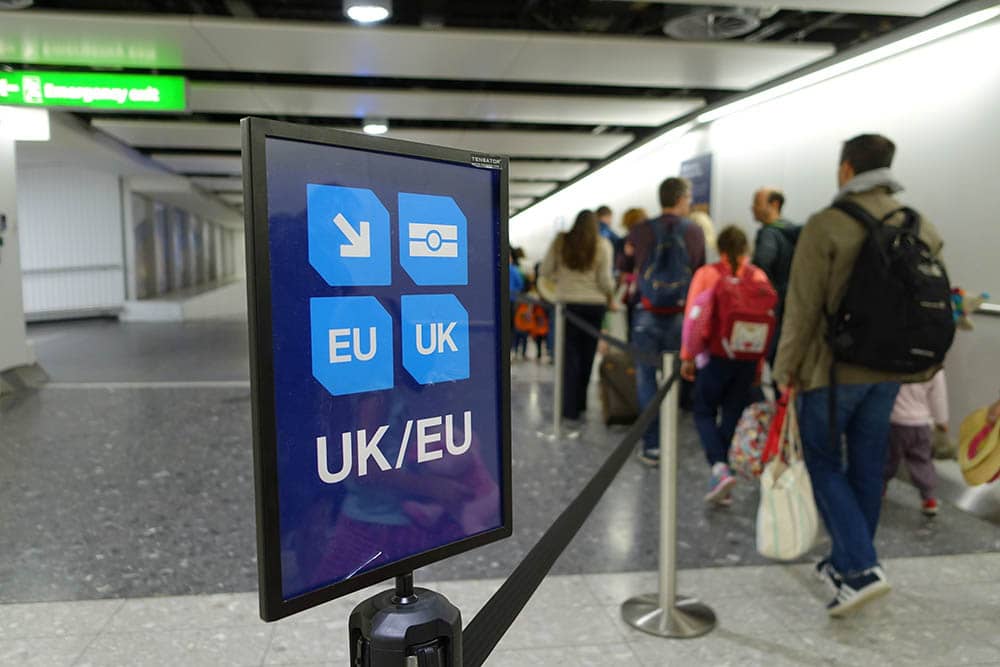
Image © Adobe Images
Pound sterling could go lower, warn some foreign exchange strategists.
Currency strategists say the British pound is at risk of further declines against the euro after it fell to its lowest level in two months in the past 24 hours.
The pound to euro exchange rate (GBP/EUR) slid to 1.1438 by midweek, a level last seen in late July, following a below-consensus UK PMI print for August, that showed UK private sector growth momentum slowed sharply in September.
It was reported on Tuesday that the UK's composite PMI fell more than expected to a 4-month low at 51, but that the Eurozone's composite PMI improved to a 16-month high at 51.2. It's not the absolute figures that matter, but rather the direction of travel, and on this basis the euro's economy is looking sharper than that belonging to the pound.
"Bottom line: relative Eurozone/UK economic activity supports the uptrend in EUR/GBP," says Elias Haddad, Senior Markets Strategist at Brown Brothers Harriman. "EUR/GBP must clear the double top at 0.8770 (July 2025 and November 2023 highs) to build upside traction."
A move higher to Haddad's referenced target of 0.8770 for EUR/GBP gives a fall to 1.14 for GBP/EUR. If your payment budget is threatened by further GBP weakness, consider locking in current rates for use at a future date. Alternatively, our dealing desk can help set up automatic orders. More on this here.
"Overall, we think EUR risks are skewed to the upside," says Patrick Ernst, a strategist at UBS.
The UK's PMI survey showed subdued demand and pressure on margins from sharply rising input costs contributed to another reduction in private sector employment numbers. "September’s flash UK PMI survey brought a litany of worrying news including weakening growth, slumping overseas trade, worsening business confidence and further steep job losses," says Chris Williamson, Chief Business Economist at S&P Global Market Intelligence.
The findings will raise pressure on the Bank of England to cut interest rates again before year-end, even if the country's inflation rate is well above the 2.0% target that the Bank is mandated to pursue.
"Alarm bells should be ringing that the economy is faltering, which could help shift the policy debate at the Bank of England back towards a more dovish stance," said Williamson.
With a Bank of England rate cut in prospect, and the European Central Bank (ECB) committed to keeping interest rates unchanged, a door to further GBP weakness against EUR opens.
Analysts at UBS warn that concerns about the UK's November budget will also weigh on the currency, as the Chancellor of the Exchequer, Rachel Reeves, must find billions of pounds in tax rises to try and fill a massive black hole in the country's finances.
Some estimates put it at around £30BN. If Reeves relies exclusively on tax rises it could trigger defensive responses by investors and businesses, that slows investment and weighs further on the economy.
"Much will hinge on government's fiscal decisions, due on 26 November. With the market’s attention sharpened for the event, the government’s main priority should be to reassure markets of fiscal soundness. The GBP has been highly sensitive to past episodes of fiscal stress, and we think this time will be no different," says Ernst.
"While we do not expect a 2022-like hiccup, we note that GBP downside risks (at least temporary) are increased and we would be cautious to add GBP exposure," he adds.
George Vessey, Lead FX & Macro Strategist at Convera, says Sterling has already been pressured by disappointing borrowing figures and mounting fiscal concerns of late.
"The gilt market has become the latest focal point of bearish sentiment, with volatility most acute at the long end of the curve. Yields on 30‑year gilts climbed to their highest levels since the late 1990s earlier this month, reflecting investor unease over the government’s ability to rein in debt and a decline in demand from traditional buyers such as pension funds," he explains.
Pressure on Pound Sterling pushes GBP/EUR to the lower end of a multi-month summer range, the bottom of which is located at the July 28 low at 1.1413.
Strategists at UBS think the pair will drift through here over the coming weeks. By 2026, analysts at the bank think 1.1363 will have been tested and broken.
